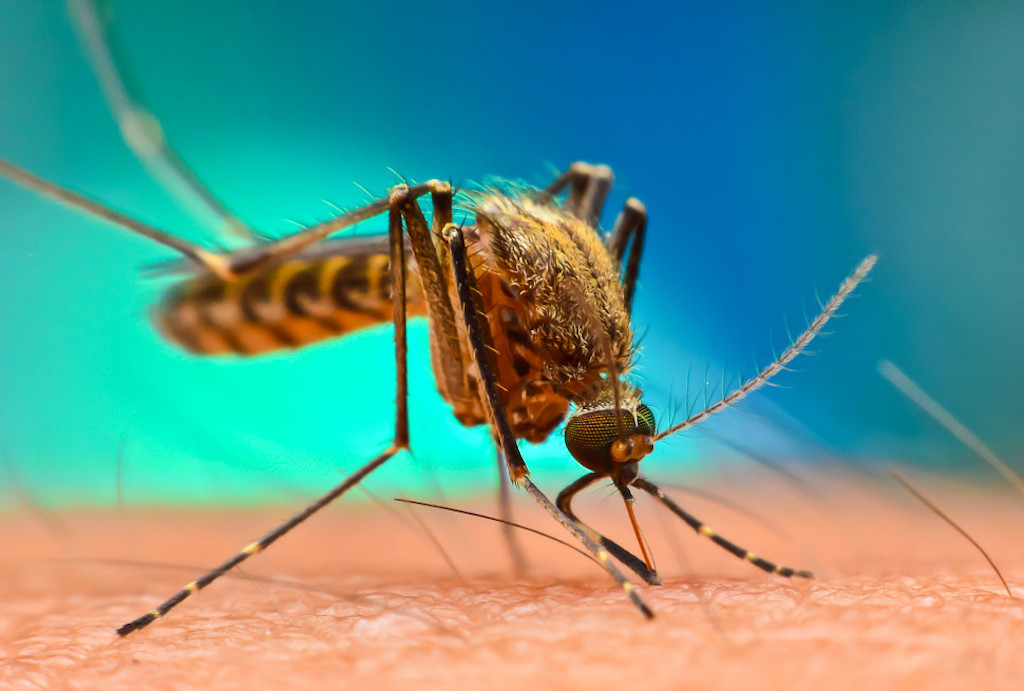The recent surge in the prices of beans and Agege bread, a cherished staple food for many low-income households in Lagos State, has left many vulnerable residents struggling to afford the once-affordable meal.
PUNCH Healthwise gathered that the sharp price hike turned a common delicacy into a luxury many could not afford, forcing difficult decisions on families across the city.
Some residents in Lagos who spoke with our correspondent lamented that the soaring prices of beans and Agege bread had disrupted their ability to maintain their usual diet.
They noted that what was previously a reliable and nutritious meal for them was no longer affordable, forcing them to seek less affordable alternatives or to cut back on other essential needs.
Beans, rich in protein and dietary fibre, have long been a primary source of nutrition for many Nigerians, especially in low-income communities.
Paired with Agege bread, a soft, stretchy loaf named after the Lagos suburb where it originated, the combination forms a filling and affordable meal that has sustained generations.
For decades, beans and Agege bread have been staples, providing sustenance and comfort to countless families in Lagos.
PUNCH Healthwise, however, discovered that the consistent price hikes have pushed these essential foods beyond the reach of many, raising concerns about the long-term impact on nutrition and public health.
Some of the Lagosians who described the combination of beans and Agege bread as a cultural phenomenon lamented that many families struggle to adapt, finding it increasingly challenging to balance their budgets while trying to keep up with the rising expenses of basic food items.
For Mrs. Taiwo Ayanfowora, her family had to cut back on beans and Agege bread because of the daily increment in prices.
Ayanfowora, a mother of three told our correspondent that a derica of beans of N500 now sells for N2,300.
She lamented that with her husband’s income stagnant, the family had to prioritise their spending, leading to significant cuts in their food consumption.
The mother of three expressed concern about the health implications, especially for her children, who are no longer receiving adequate protein.
She noted that despite trying to find alternatives or buying smaller quantities, the high cost remains a significant burden.
Ayanfowora said attempts to find alternatives have proven futile because other protein sources are either equally expensive or out of reach.
While stressing that these substitutes are no match for the nourishing combination of beans and Agege bread, she revealed that her family now eats the combination only once in a while.
“My husband’s income has not increased, and we have to prioritise our spending. We’ve had to cut back on beans and Agege bread, and it is affecting our nutrition. My children always told me they want to eat bread and beans, but the price is out of reach.
“I have tried alternative sources, but they are not as affordable. I have even considered buying beans in smaller quantities, but it is still expensive.
“We all know how important beans are for children that are just growing up, I am worried about the health implications for my family. We are not eating as balanced a diet as we used to because of the current economic reality
“Beans and Agege bread were our go-to affordable options, and now they are out of reach,” she expressed.
A student, Tunji Uthman who claimed he was living on a tight budget, lamented that the price hikes have turned what was once a daily meal into an uncommon luxury.
Uthman noted that he has considered various alternatives, but they all come at a price he cannot afford.
He stated, “I used to buy beans and Agege bread every day, but now I can only afford it once a week.
“I have tried to find alternative sources of protein, but they are not affordable. I have even considered skipping meals, but I know that is not healthy.
“This is not just about me, many of my fellow students are facing the same challenges. We are not eating as healthy as we used to, and it is going to catch up with us eventually.
“I have heard some people say we should rely on our parents for support, but my parents are struggling too. They can’t afford to send me money every month.
“We need affordable food options for students like me. I am calling on the government to do something about the prices. We can’t keep living like this.”
Also, Rildwan Mujaideen told PUNCH Healthwise that he has been forced to cut back on his food expenses, which has had a noticeable impact on his health.
Mujaideen lamented that adjusting to the new reality has been difficult.
He expressed concern that despite his efforts, the price hikes have made it nearly impossible for him to maintain his previous standard of living.
He added, “I have had to cut back on my food expenses, and it is affecting my health. I am not eating as balanced a diet as I used to, and I can feel the difference.
“I have tried to adjust to the new prices, but it is hard. I have even considered moving out of Lagos to a place where food is cheaper, but I have my family here.
“I am not sure what the government is doing about the prices, but it needs to do something. We can’t keep living like this.
“I remember when beans and Agege bread were N50 and N20 respectively. Now you will need to buy like N600 bread with beans of N500. This is outrageous.”
“The government needs to take responsibility and find a solution. I just hope something changes soon. We need affordable food options for our families.”
Mrs. Blessing Adeoye, who is also a widow, stated that since losing her husband to cancer last year, she has found it difficult to support her family.
She lamented that the continuous hike in the prices of beans and Agege bread has only added to her difficulties.
The widow claimed that due to financial constraints, she was forced to reduce food costs.
She explained, “I lost my husband last year, and since then, it has been a struggle to make ends meet. The prices of beans and Agege bread have made it even harder. I’m trying to raise my two children on my own, but it is getting impossible.
“I have had to cut back on our food expenses, and it is affecting our health. My children are not getting the nutrition they need.
“I have tried to find alternative sources of protein, but they are not affordable. I have even considered begging, but I don’t want to resort to that.”
Bread producers protest persistent hike in flour
Meanwhile, the Association of Master Bakers and Caterers of Nigeria in Lagos State on August 15, embarked on a protest to express displeasure at the hike in flour price despite the Federal Government’s waiver.
The association lamented that despite the recent approval of a duty-free importation waiver on wheat, maize, and other commodities, flour prices kept rising.
Speaking during the protest, the association’s chairman, Chief Ayoola Mathew, expressed concern over Nigerian millers’ failure to implement the waiver.
This, he argued, had led to a surge in flour prices, making it difficult for bakeries to operate smoothly.
He said, “In July, the Federal Government of Nigeria announced the approval of a 150-day duty-free window to allow the importation of wheat, maize, and husked brown rice as part of measures to alleviate rising food inflation across the country, effective August 1, 2024. The purpose of the Federal Government’s notable action was to help bring down the prices of food items in the market, making some food items more accessible and affordable for the masses.
“As Nigerians and members of the Master Bakers and Caterers of Nigeria, We sincerely commend the Federal Government upon this approval as part of measures to combat rising food inflation in Nigeria. However, it’s unfortunate to note that the Nigerian millers have yet to implement this relief on the price of their commodities.”
He added that the association’s findings revealed that some millers chose to ignore the waiver and instead continued to inflate the price of flour daily.
The body stressed that such an action had not only disregarded the Federal Government’s efforts to alleviate the suffering of Nigerians but also a severe blow to their industry.
“It’s a way of robbing innocent Nigerians. The millers did not consider our call for price reduction but rather advised us to inflate the price of bread more to inflict pain and hardship on the common man, which is an inhumane action to take.
“This constant increase in the price of flour by millers has made it impossible for bakeries to operate and function smoothly which has also led to the shutdown of many bakeries and their staff being laid off. Lives are at stake when basic needs are scarce. Nigerians complain daily due to a lack of basic needs for survival and bread is one of them. The flour millers are mounting pressure on human beings unnecessarily.”
Beans
Food experts told our correspondent that beans were highly valued for their nutritional benefits, offering a rich source of plant-based protein, fibre, and essential nutrients like folate, iron, and potassium.
Speaking exclusively with PUNCH Healthwise, they noted that combining beans with other foods such as rice or bread could provide a complete protein profile, making them a versatile dietary choice.
Both experts agreed on the importance of consuming a variety of foods in the right proportions to meet nutritional needs.
A Chief Dietician, Olufunmilola Ogunmiluyi stressed that while beans can be gas-producing and may cause discomfort for some, they are rich in antioxidants which help combat cell damage and age-related diseases.
The food expert noted that beans are high in fibre, which benefits the digestive system and may reduce the risk of digestive cancers.
She stated, “Although, beans can be gas-producing and may cause discomfort for some people. Beans are also legumes that contain antioxidants that help prevent cell damage and fight disease and aging. The fibre and other nutrients benefit the digestive system and may even help prevent digestive cancers. Beans are plant protein food. Beans contain both carbohydrates and are also high in fibre.
“Beans are an inexpensive source of protein. Beans provide protein, fibre, folate, iron, potassium, and magnesium which are vitamins and minerals for proper growth and immune development. Beans contain both protein and carbohydrates, but the protein in beans is not a complete protein because it lacks one or more essential amino acids.
“However, when combined with other protein sources, such as rice, beans can provide all the essential amino acids needed for a complete protein, some people also prefer to eat beans with bread. Beans and toast is a breakfast tradition in the UK (it’s both adored and loathed) that has stood the test of time. In addition, heavy-duty workers in Nigeria prefer to eat beans and bread to give them a long time of hours before they feel hungry, they believe it makes their stomach full and bulky. Also, it saves spending on food throughout the day.
“Bread is a low-fat source of protein which is required by our bodies for growth, renewal and repair. Pairing bread with beans on toast is an excellent way to meet daily protein requirements. The eating demand for a specific food is affected by the time and money cost of this food is high, and the outcome of the high price of this food affects good health (this affects the reason to consume common food).”
On her part, a Registered Nutritionist, Mrs. Odunayo Babatunde suggested that there were viable alternatives to beans for those who may face challenges with availability or cost.
She explained that Tofu, derived from soya beans, and various nuts like cashews and groundnuts can serve as suitable substitutes.
“There may be no implications if their nutritional needs are met from other alternatives of beans. Alternatives like Tofu from soya beans(wara in Yoruba) and nuts like cashew nuts and groundnuts can be an alternative to beans.
“Beans mostly contain carbohydrates but are still rich in protein. It contains soluble fibre which helps the gut and aids digestion. It contains important amino acids but it is still important to combine beans with rice or corn to benefit from complete important amino acids.
“The best alternative as said earlier is to consume Tofu(wara), soya milk, nuts like cashew nuts, groundnuts, etc.
“It is advised that people eat healthy food. There are alternatives for foods that may be expensive or scarce at particular seasons. Therefore, individuals can consume these alternatives. The important thing is to eat food in the right quantity, Proportions (in terms of food classes) and different varieties.”

 4 months ago
9
4 months ago
9















 English (US) ·
English (US) ·